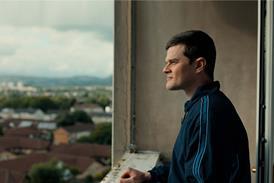There has never been a better time to work with Brazil thanks to state support for co-productions and a strong presence from the country’s dynamic filmmakers on the festival circuit. But does a new government threaten all this?

Ever since Brazil’s new president Jair Bolsonaro of the far-right Social Liberal Party dissolved the country’s ministry of culture and created the ministry of citizenship, which encompasses sports, communications, social policy and culture, many in the local film community feared the worst. The industry still remembers the abrupt closure of former state film agency Embrafilme in the early 1990s at the whim of a reforming new government that led to the almost total collapse of local film production.
Cultural policies are not thought to be a priority for Bolsonaro and for now, the official line from Ancine — the national film agency created from the ashes of Embrafilme — is that there is nothing to worry about. Ancine forms the bedrock of the local film industry and invests around $93m a year in local production. It is now under the aegis of the new ministry.
“Based on the conversations we had with the government, there is an awareness of the importance of continuing our work to strengthen the sector,” says Christian de Castro, head of Ancine.
The Brazilian film industry was worth $6.8bn in 2017, the latest year for which figures are available, according to Ancine. It employs around 100,000 people and is bigger than the country’s pharmaceutical industry.
Ancine has worked hard to make the Brazilian industry more internationally focused. It now plans to invest $11.3m over five years in international co-productions, a significant increase on the $6.8m it has invested in international co-productions in the last five years. The aim is to work with potential partners in territories irrespective of whether Brazil has a bilateral co-production agreement in place in order to soften the impact of the fall of the Brazilian real against the US dollar (due to the country’s worst recession in 20 years) and increase the appeal of Brazilian partners on international projects.
Uncertain future
But what worries many in the industry is the future of Ancine itself. “Bolsonaro has already said he wants to reduce the number of government regulatory agencies [there are 11 in total] and Ancine could be in his sights,” says filmmaker Lais Bodanzky, whose credits include Just Like Our Parents.
“When Embrafilme was closed, nothing else took its place [until Ancine was created in 2001]. Only now that the industry has recovered are we at risk of another blackout,” says Bodanzky, who has just finished shooting Pedro, a $2.8m co-production between Brazil and Portugal, for which she received Ancine backing. It is a drama about the private life of Pedro I of Brazil, the first ruler of the country.
Crucially Ancine administers the Audiovisual Sector Fund (FSA), the most important federal fund in Brazil. For the last five years, all local films — both mainstream and arthouse — have been almost entirely funded by the FSA, which in turn is funded by the Contribution to the Development of a National Film Industry, a levy on Brazil’s entire audiovisual industry, including broadcasters, distributors and exhibitors.
“Without our federal fund devoted to finance projects, we wouldn’t find partners,” says producer Eliane Ferreira of Muiraquita Filmes. “The first question an international producer always asks me is, ‘How much money have you already got from Brazil.’’ Ferreira is the Brazilian producer on Helvecio Marins Jr’s Homing (Querencia), a co-production with Germany that is screening in the Berlinale’s Forum. Set in rural Brazil, the drama follows a master of ceremonies at rodeo shows.
“A partnership with Brazil has never been so interesting,” Ferreira enthuses. “The country has money to finance films and a presence at international festivals.”
Some believe it was a mistake to have concentrated almost all Brazilian cinema financing into a single mechanism. “Now one decision by the government can end everything,” says producer Leonardo Mecchi of Enquadramento Producoes.
Ever since Brazil’s state-owned oil company Petrobras stopped supporting Brazilian culture (including more than 500 films) in 2013 due to revenue losses and corruption scandals, Ancine and the FSA became the film industry’s only source of support.
“We do not have any other doors to knock on,’’ says Mecchi, whose credits include the Brazil-France-Colombia collaboration Los Silencios, which screened in Directors’ Fortnight at Cannes in 2018.
“We would be entirely dependent on small amounts from international funds [such as Berlin’s World Cinema Fund], which often only allows us to make a kind of guerilla film,’’ says producer Tatiana Leite of Bubbles Project, known for Loveling which screened at Sundance and International Film Festival Rotterdam last year.
The transition to the new government should not affect the work of export programme Cinema do Brasil, according to executive manager Ana Leticia Fialho.
Created in 2006 to boost the presence of Brazilian films on the international market, the programme is supported by the private sector via the State Audiovisual Alliance Industry for Sao Paulo. The organisation’s government partner is Apex-Brasil, the Brazilian Trade and Investment Promotion Agency.
“We hope to renew with Apex this year,” says Fialho, who is thrilled there are 11 Brazilian feature films screening across the Berlinale.
She points out there were 22 international co-productions with Brazil in 2017. That compares to just the six in 2007. “In these last 13 years, we have demonstrated the relevance of our work and seen Brazilian cinema enter markets such as Poland, Greece and Hungary in Europe, and in Asia,” adds Failho. “This is a result of long-term work. Even the evolution of international co-productions with Brazil is a reflection of how the image of our cinema has gained more weight abroad.”
Spotlight on Brazilian producers
Eliane Ferreira - Muiraquita Filmes
Among the projects on her diverse slate, Eliane Ferreira is working with director Karim Aïnouz — best known for Madame Sata, The Silver Cliff and Futuro Beach — to develop the anticipated Aurora, hopefully as a co-production with Norway, to be shot in 2020-21. Ferreira’s credits include Ricardo Calil’s documentary Cinema Morocco, which won the Golden Dove award in the Next Masters Competition in Leipzig last year, and Helvecio Marins Jr’s Homing, which is screening as part of Forum at the Berlinale.
Leonardo Mecchi - Enquadramento Producoes
Leonardo Mecchi recently produced Maya Da-Rin’s The Fever, a co-production with France and Germany that is now in post-production. Further credits include Beatriz Seigner’s Los Silencios, which screened at Directors’ Fortnight in Cannes last year, and Marina Meliande’s drama Sultry, which was showcased in Tiger Competition at Rotterdam in 2018.
Tatiana Leite - Bubbles Project
As the founder of Bubbles Project, Tatiana Leite produced Gustavo Pizzi’s Loveling, which made its world premiere at Sundance last year. Leite also produced Camila Jose Donoso’s Nona — If They Soak Me, I’ll Burn Them, a co-production between Chile, Brazil, France and South Korea that screened in the Tiger Competition at Rotterdam last month, and co-produced Maria Alché’s A Family Submerged with partners from Argentina, Germany and Norway. It screened at Locarno and San Sebastian last year.
Luana Melgaco - Anavilhana
It has been a busy 2019 already for Luana Melgaco. She is in Berlin with Santiago Loza’s Brief Story From The Green Planet, a co-production with partners from Argentina, Germany, Brazil and Spain, which is screening in Panorama. Malgaco recently attended Rotterdam with Clarissa Campolina and Luiz Pretti’s Enquanto Estamos Aqui. The film is a love story between a Lebanese woman and a Brazilian man set in New York, and screened in the Bright Future strand. Next up for Melgaco is Sergio Borges’s Coiote, which is in post.
Thiago Macedo Correia - Filmes de Plastico
Thiago Macedo Correia was in Rotterdam with Gabriel Martins and Maurilio Martins’ In The Heart Of The World, which was selected for the Tiger Competition, and Andre Novais Oliveira’s Temporada, which screened in the more experimental Soul in the Eye. Correia is set to produce the next Oliveira film, And My Eyes Keep Smiling, which he presented at Rotterdam’s CineMart.















![[Clockwise from top left]: Paul Thomas Anderson, Chloe Zhao, Ryan Coogler, Park Chan-wook](https://d1nslcd7m2225b.cloudfront.net/Pictures/274x183/9/0/0/1467900_writerdirectors_192733.jpg)





![[Clockwise from top left]: Paul Thomas Anderson, Chloe Zhao, Ryan Coogler, Park Chan-wook](https://d1nslcd7m2225b.cloudfront.net/Pictures/100x67/9/0/0/1467900_writerdirectors_192733.jpg)


No comments yet